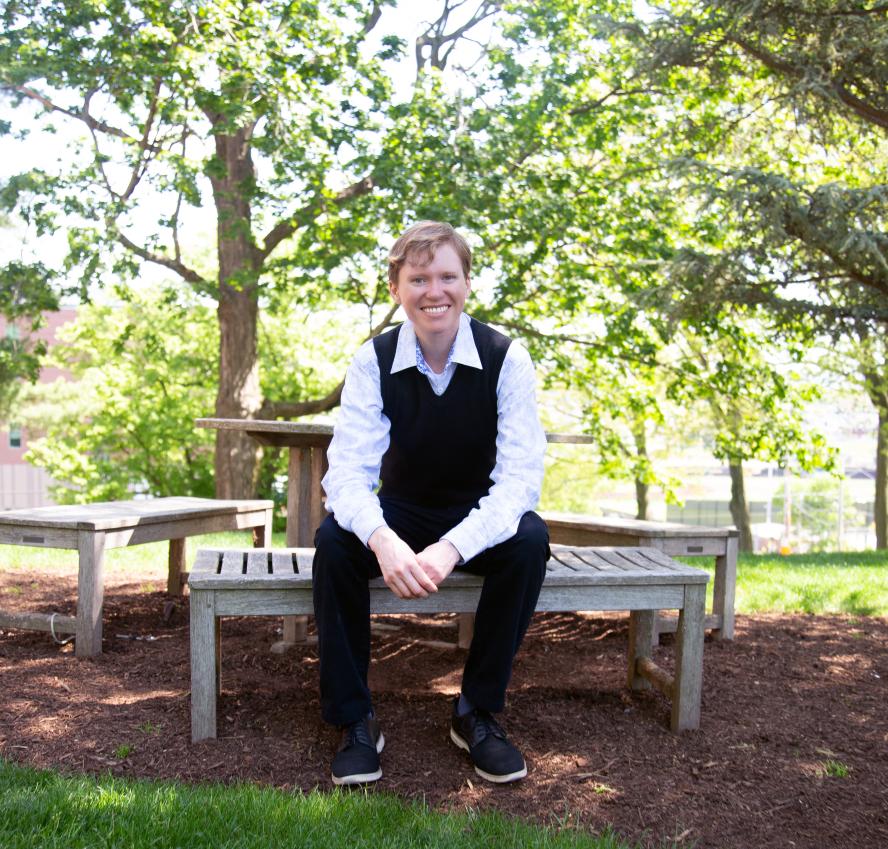Selling Hate

By: Maisie O'Brien
Cameron Hollenbeck’s thesis was, to put it mildly, an emotionally taxing undertaking. He spent countless nights poring over antisemitic tracts, speeches, and diary entries written by Lieutenant General Shiōten Nobutaka, a prominent Japanese politician and prolific propagandist of Jewish conspiracy theories during the early 20th century.
Hollenbeck was initially interested in Shiōten as an oddity, albeit a particularly insidious one, given that Japan has no historical Jewish population and Shiōten didn’t meet a Jewish person until he was 39 years old. While it is impossible to fully grasp why a historical figure (or anyone) would devote much of their life to propagating hate speech, Hollenbeck’s research illuminates the methods Shiōten used to stoke national fears and spread an antisemitic ideology.
“In many ways, Shiōten was typical of his day in terms of his views around race, religion, and Japanese ultranationalism,” says Hollenbeck. “His beliefs were predicated on a widespread antipathy towards post-World War I era politics and reflected an anxiety about Japan’s place in the world. He was unique primarily in his vilification of Jews rather than Westerners generally as the culprits of international political change, so he developed specific rhetoric to make antisemitism appear sensible and relevant to a Japanese audience.”
Shiōten tied antisemitism to topics such as national security, global stability, Japanese religion, and the moral education of children. “He employed a rhetorical opportunism to incite fear and hatred in subtle and direct ways,” says Hollenbeck. “He was alerting a very insular nation to the dangers of ‘the Jewish problem,’ going so far as to repeatedly reference the extermination of the Jewish people.”
Hollenbeck sees alarming parallels between his research on Shiōten and the resurgence of antisemitic discourse today. “While there’s certainly a danger in reading too much of the present into the past, I feel like I understand present-day antisemitism a bit more in terms of how it’s spread and why people latch on to it,” he says. “It’s horrifying to see the rise of this rhetoric again.”
Hollenbeck first wrote about Shiōten in a seminar on travel writing taught by Professor of History Ina Baghdiantz-McCabe. Hollenbeck, who is fluent in Japanese and previously worked as a middle school teacher in Japan, chronicled Shiōten’s time serving as a member of the Imperial Japanese Special Forces. “It was such a fantastic class,” says Hollenbeck. “We had the opportunity to be creative and write about a historical figure who was trying to better understand the world and themselves through their travels.”
Professor Baghdiantz-McCabe was so struck by Hollenbeck’s intellect, passion for history, and collaborative nature that she hired him to work as her teaching and research assistant. “Cameron has an extraordinarily analytical mind and a deep commitment to scholarship,” Baghdiantz-.McCabe reflects. “He is one of the sharpest graduate students I have taught and is outstanding in everything he does. My students loved him as their TA and I was fortunate to collaborate so closely with him.”
Hollenbeck studied history at the University of North Carolina at Chapel Hill with a focus on Eastern Europe. He is fluent in Russian and Japanese and is learning Yiddish. He was initially drawn to the Tufts History Department because the trans-regional focus of many of the faculty aligned with his varied interests and academic background. He was also interested in acquiring teaching experience at the college level having enjoyed teaching middle school students in Japan.
“I’ve found the Tufts History Department to be very wonderful and welcoming,” Hollenbeck says. “The faculty are always looking out for students and I’ve felt very supported. They are truly a force for good. All of the classes I’ve had have been excellent – I’ve just completely fallen in love with it.”
“Cameron is a fantastic student and dedicated scholar,” says Hollenbeck’s advisor Associate Professor of History Rachel Applebaum. “I was so impressed by his thesis tracing the life and times of Lieutenant General Shiōten. His thesis is important in shedding light on our understanding of Imperial Japan as well as the development of modern antisemitism. I look forward to seeing what great things he goes on to do next."
Hollenbeck is currently applying to PhD programs and envisions a future that combines his love of history, research, and teaching.